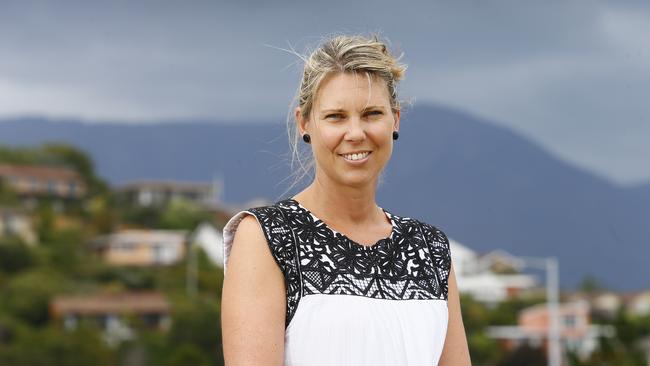Future Tasmania: We are lucky to have got here ... so the future will rely on a rethink
An urgent rethink of economic development policy is critical, says LISA DENNY.

Opinion
Don't miss out on the headlines from Opinion. Followed categories will be added to My News.
OUR economy, society and political ideologies are geared to increasing consumption to grow our economy rather than focusing on productivity, innovation and the traded sectors.
Consumption — the expenditure of disposable income — includes such things as housing and home furnishings, education, entertainment, travel, new cars, personal services and smashed avocado.
FUTURE TASMANIA: THE BIG TASSIE PROJECTS THAT WILL DRIVE JOBS FOR YEARS
The prevailing premise is that greater spending by more people creates jobs and grows the economy, hence a reliance on population growth.
Some of the jobs created in such an environment are skilled, higher-paid, secure professions such as engineers, lawyers, builders and teachers — but more are less-skilled, lower-paid and less-secure: think baristas, cleaners, sales staff and other service jobs.
A recent CommSec State of the States report outlines eight key indicators of economic performance all based on consumption patterns: new housing construction, unemployment, population growth, economic growth, equipment investment, housing finance, retail spending and other construction work.
While the report suggests that the Tasmanian economy is faring relatively well (based on historic performance), it also highlights that the state’s weaknesses are relative economic growth, employment growth and retail spending; all of which are a risk to future consumption levels if not improved.
MORE FUTURE TASMANIA:
THE TOWN WHERE GROWTH AND JOBS COLLIDE
FORGET SOW EAR, WE ARE A SILK PURSE ECONOMY
EMBRACE OUR SMALL SIZE AND LEAD THE PACK
With an end to population growth on the horizon and threatening future consumption patterns (apart from increasing tourism), it raises the question that Future Tasmania series demographer Bernard Salt highlights: where will growth come from if not from population growth?
In considering this, it is worth reflecting on the concept of Australia as the Lucky Country.
When Donald Horne titled his 1964 book The Lucky Country, he was proposing that Australia’s relative economic prosperity was based almost entirely on luck, the product of other people’s ideas rather than the strength of its political or economic system, which Horne believed was second rate.
He argued that Australia’s lack of leadership and levels of enterprise and innovation, lower than any other prosperous industrial society, were masked by wealth and power largely derived from rich natural resources and immigration.
Fifty-five years later, the US Harvard Kennedy School Center set out to map the progress and opportunities of 133 economies in the industrial and non-industrial world. The result is the Atlas of Economic Complexity, which reveals an inconvenient truth about Australia: that our natural resources continue to mask, and contribute to, Australia failing to innovate and develop the industries needed to maintain its position in the top ranks of developed nations.
The report projects that Australia’s economy will grow very slowly and concludes that Australia is part of a group of simple economies that should adopt policies that earmark industries for support. It further suggests that Australia will struggle to break into international markets beyond resources and agriculture.
In order to inclusively grow the economy, an urgent rethink of economic development policy is critical.
Demographer Lisa Denny is Research Fellow with the UTAS Institute for the Study of Social Change.


